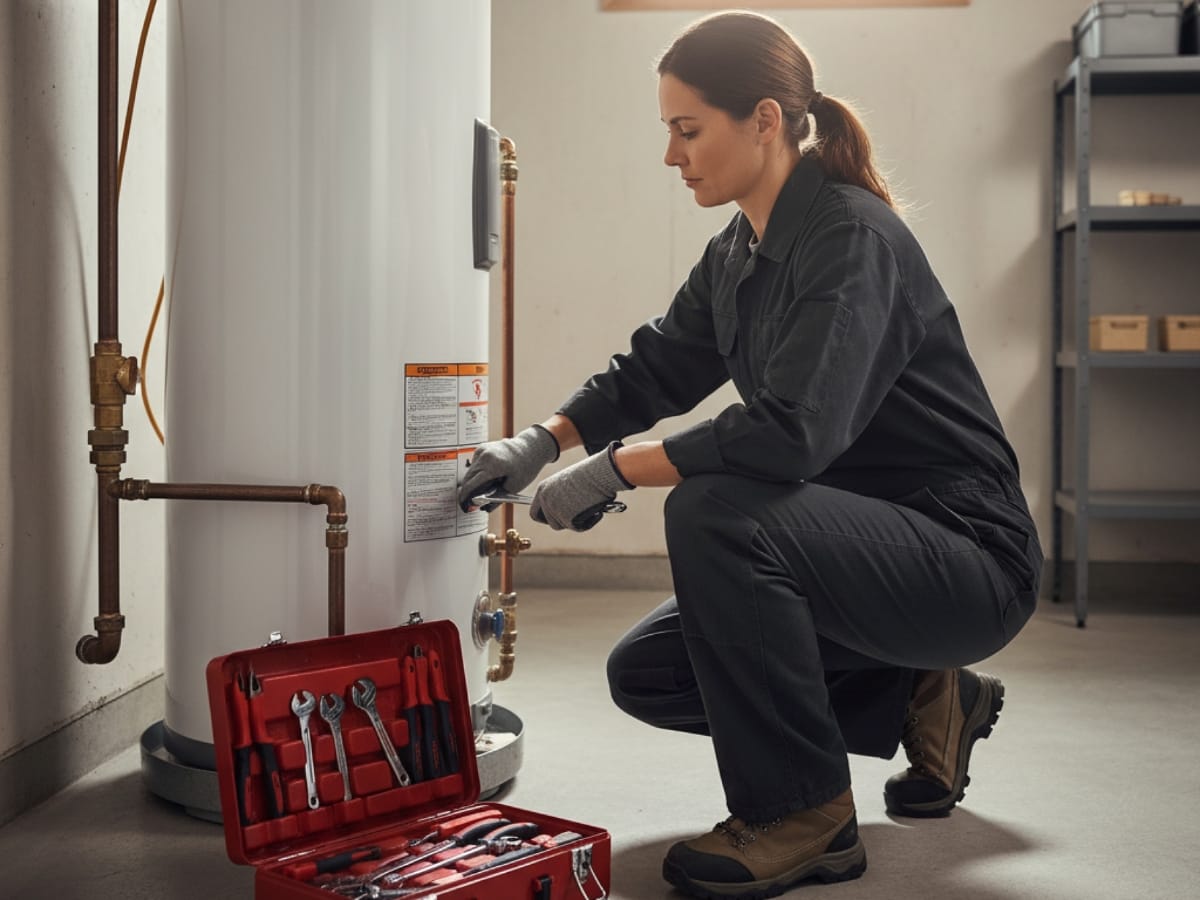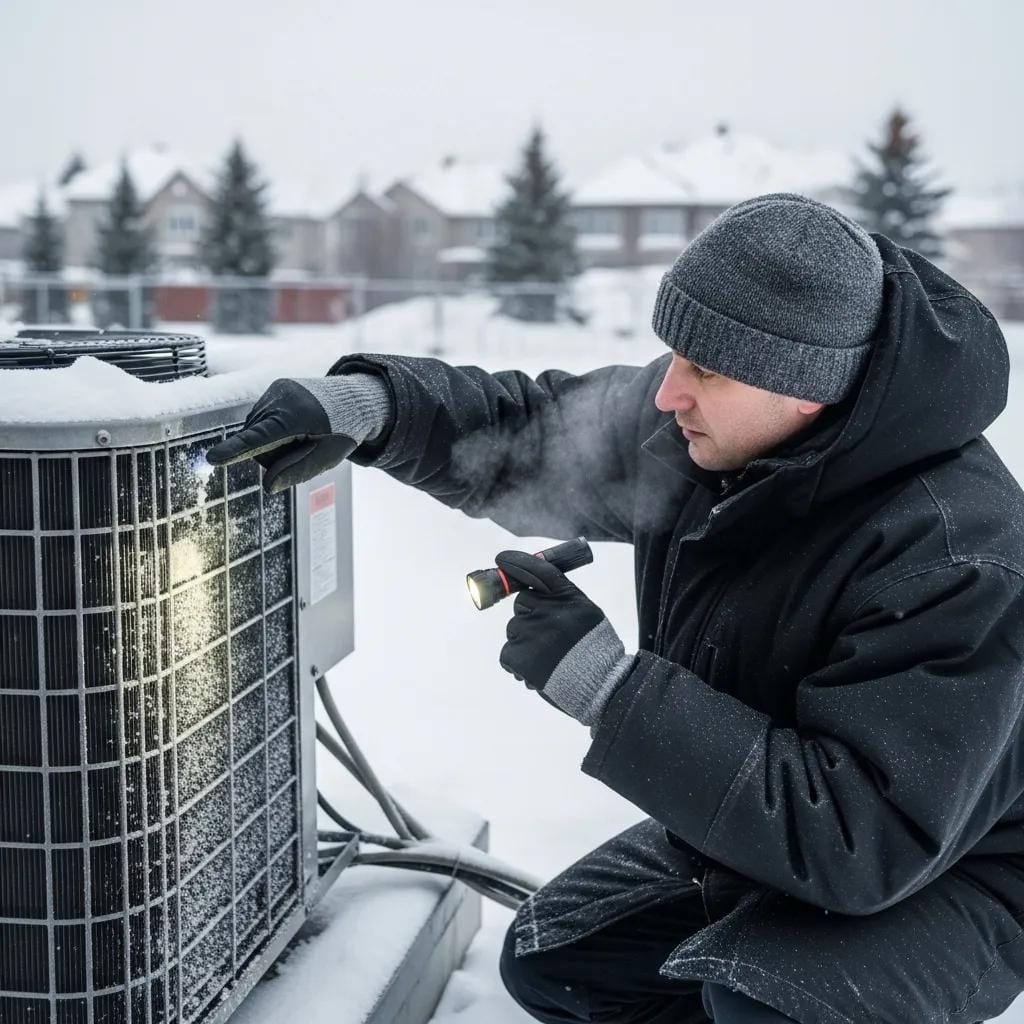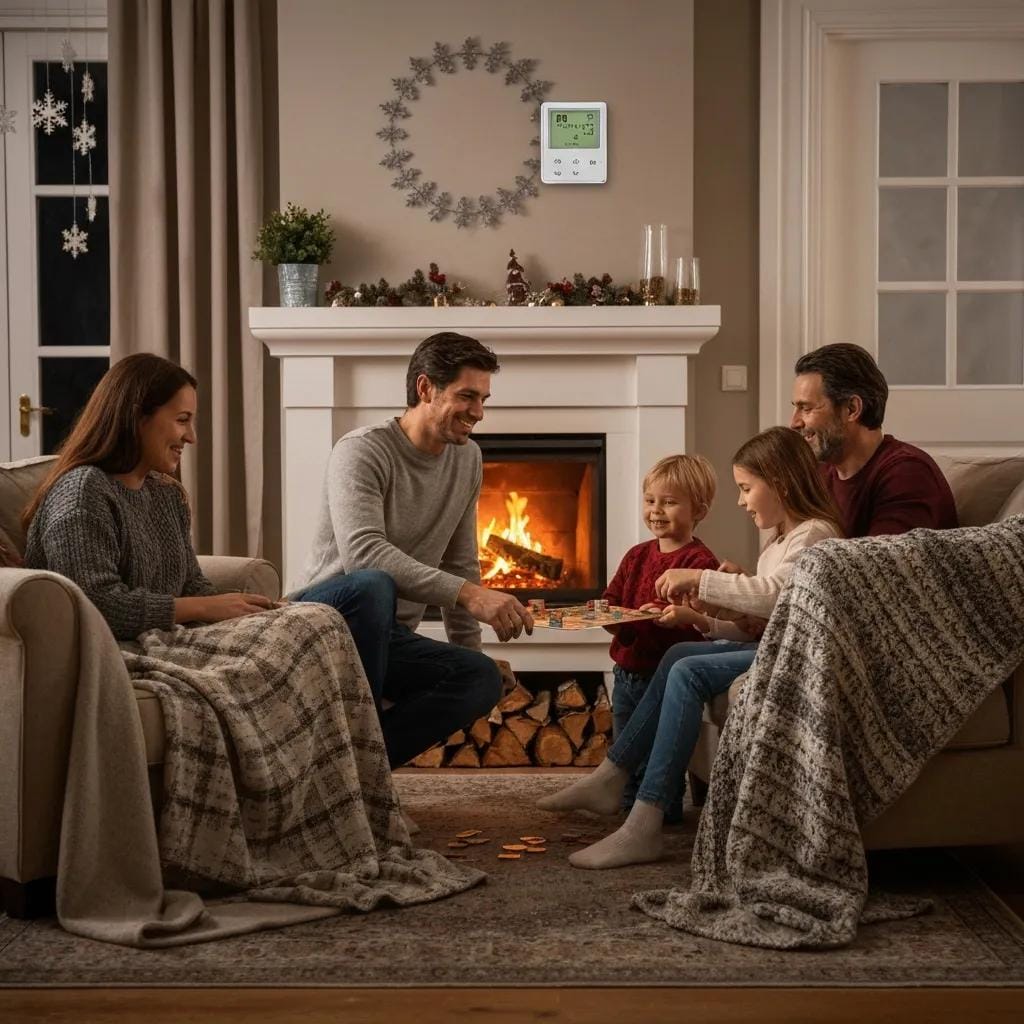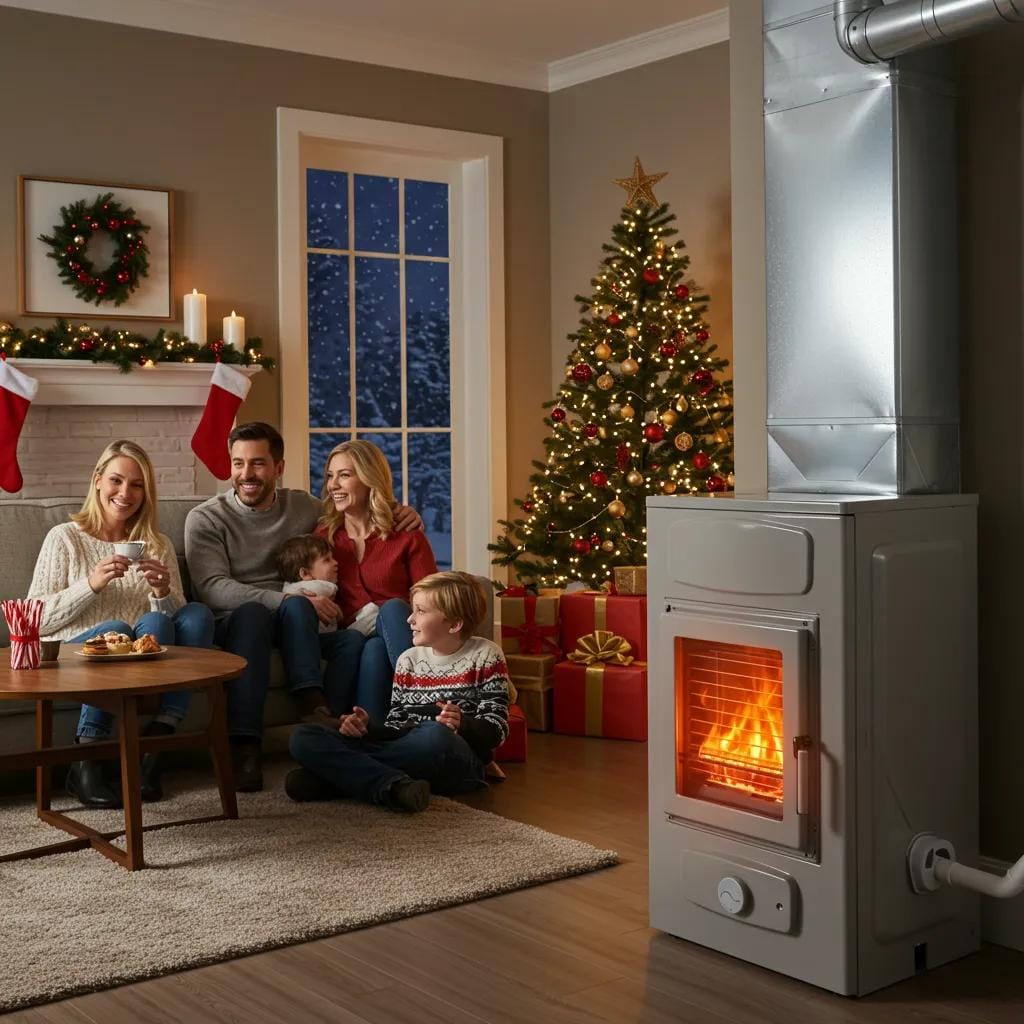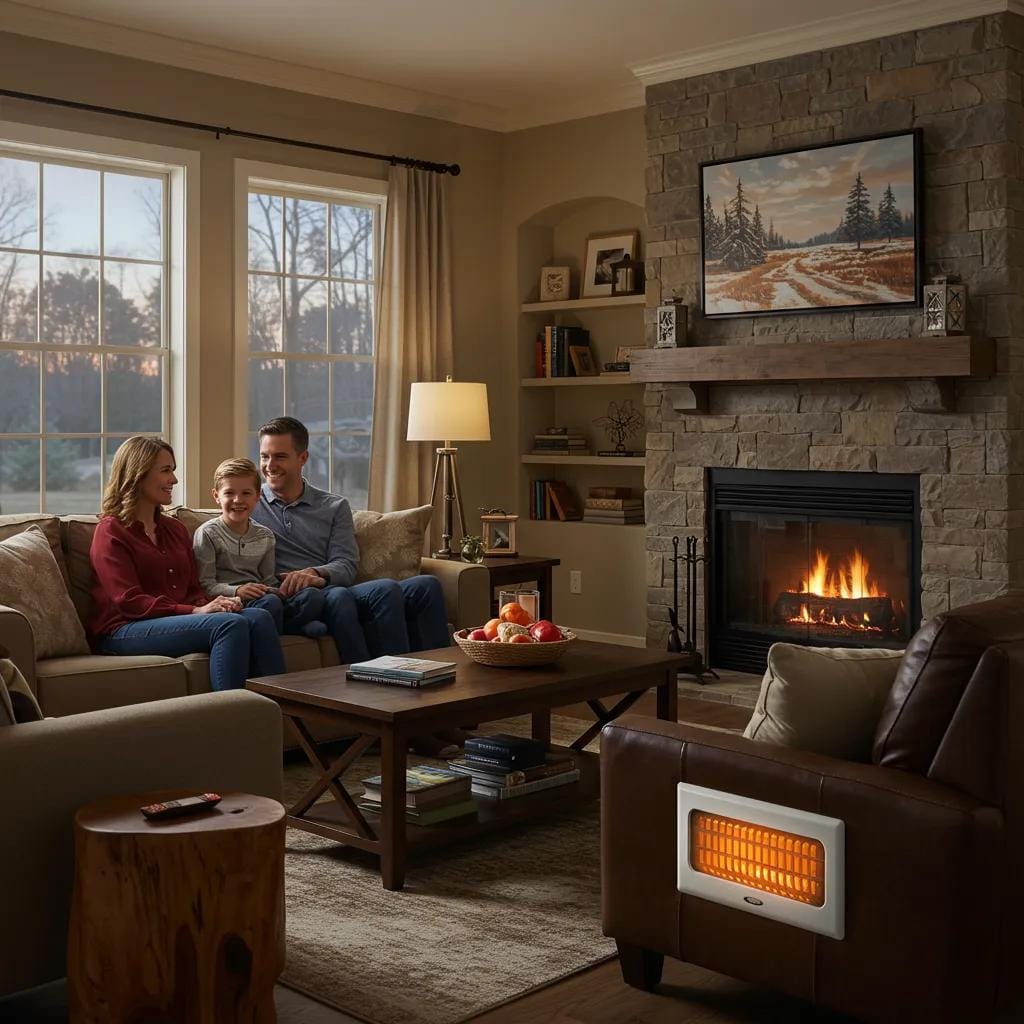Choosing the best heating systems for your Atlanta home is about more than just staying warm during the occasional chilly winter night—it’s about efficiency, comfort, and long-term cost savings. With Atlanta’s mild but variable winters, homeowners need a system that balances energy performance with reliable operation, whether it’s a heat pump, furnace, or hybrid solution. In this guide, we’ll compare the best heating options for Atlanta’s climate, helping you find the perfect fit for your home’s needs and budget.
The Best Heating Systems for Cozy, Energy-Efficient Homes
What Are the Main Types of Heating Systems for Atlanta Homes?
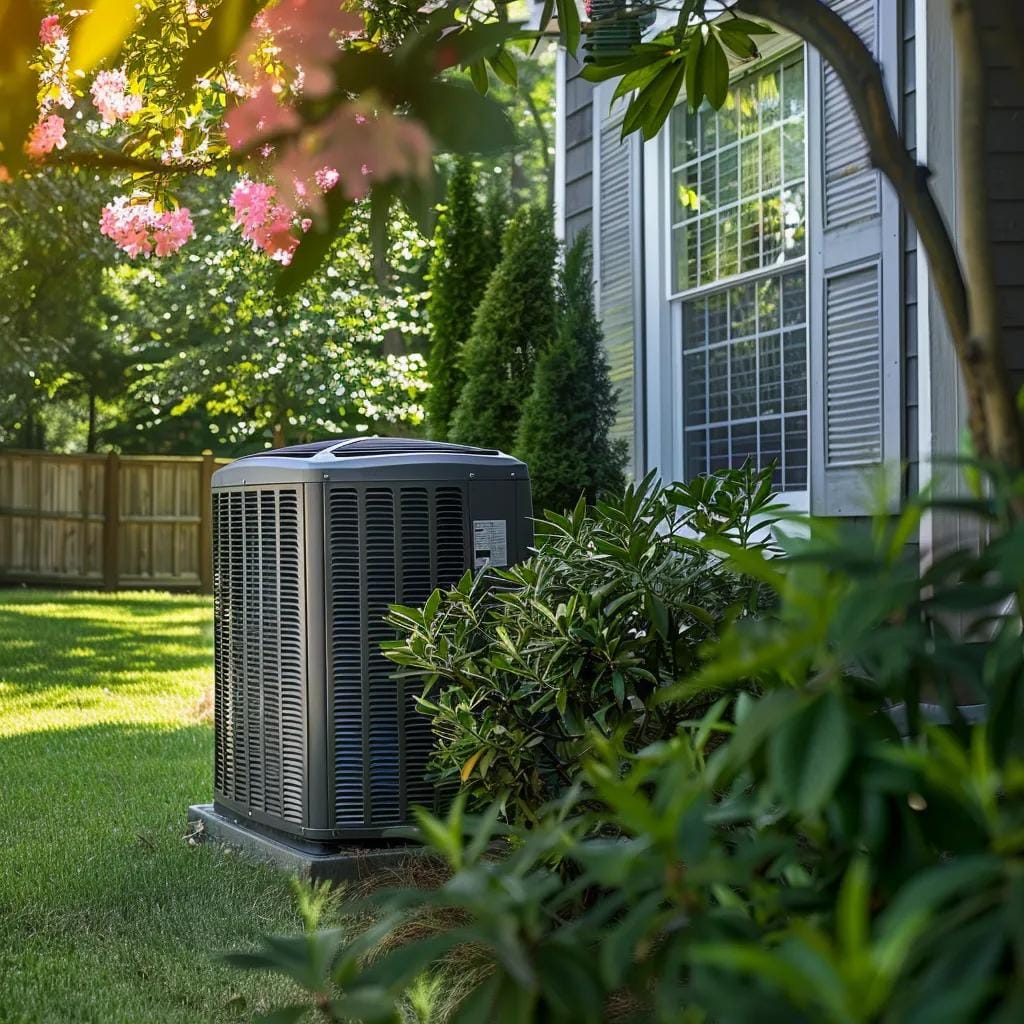
Atlanta’s mild winters and occasional freezes call for reliable, efficient heating systems that match local weather patterns and fuel costs. A well-chosen heating solution keeps homes comfortable without driving up utility bills, while ensuring enough capacity to handle rare cold snaps. From traditional furnaces to modern heat pumps and hybrid setups, Atlanta homeowners have several options that balance installation complexity, operating efficiency, and long-term value.
Why Choose a Furnace for Atlanta Homes?
Furnaces generate heat by burning fuel or using electric elements inside a heat exchanger. A blower then pushes warmed air through ductwork and into living spaces. In Metro Atlanta, natural gas furnaces offer the lowest operating costs, while propane furnaces serve properties without access to gas lines. Electric models suit homes where running gas lines isn’t practical. High-efficiency furnaces now reach AFUE ratings near 98 percent, meaning nearly all the fuel’s energy becomes usable heat. Proper sizing is critical—an undersized unit will struggle on cold mornings, while an oversized one cycles too frequently, wasting energy and wearing out components.
What Makes Heat Pumps a Viable Choice?
Heat pumps transfer heat rather than generate it, moving warmth from the outside air into a home during winter and reversing the process to cool in summer. Modern models can reach SEER ratings of 20 and HSPF values above 10, cutting utility costs compared to many electric resistance systems. Because they handle both heating and cooling, they simplify maintenance and save space by replacing separate air conditioners and heaters. However, when temperatures dip below freezing, heat pumps become less efficient and may require backup heating. Despite this limitation, many Atlanta homeowners appreciate their year-round versatility and lower carbon footprint.
How Do Dual-Fuel Systems Combine the Best of Both Worlds?
Dual-fuel, or hybrid, systems pair an electric heat pump with a gas furnace, automatically choosing the most economical mode based on outdoor temperatures. On milder winter days—when heat pumps operate efficiently—the system delivers high energy transfer rates, sometimes exceeding 300 percent. Once temperatures fall below a set threshold (often around 35°F), the gas furnace kicks in to provide rapid, reliable warmth. Although the upfront cost for a dual-fuel system runs between $6,000 and $9,500, the long-term savings on energy bills and the seamless comfort management make it an attractive option for many homeowners seeking both economy and performance.
What Are the Advantages of Mini-Splits and Geothermal Systems?
Ductless mini-split heat pumps offer zoned control without the need for ducts, making them ideal for room additions, sunrooms, or retrofits where extending ductwork is impractical. Each indoor unit operates independently, so you heat only the spaces you’re using. Geothermal heat pumps tap into stable underground temperatures via buried loops, delivering exceptional efficiencies that can exceed 400 percent. Though geothermal installations come with higher initial costs, their low operating expenses and long equipment lifespans often yield strong paybacks in climates with pronounced temperature swings.
Is Radiant Floor Heating a Good Fit?
Radiant floor systems embed tubing or electric elements beneath flooring to supply consistent, silent warmth directly to living spaces. Because heat rises evenly from the floor, occupants enjoy a comfortable environment without the drafts or noise of forced-air systems. While installation is more invasive—typically involving slab pours or subfloor modifications—radiant heating pairs well with efficient heat sources like geothermal or high-efficiency boilers. For Atlanta homes undergoing major remodels or new construction, radiant floors deliver an upscale heating option that enhances comfort and property value.
How Does Atlanta’s Climate Influence Your Heating System Choice?
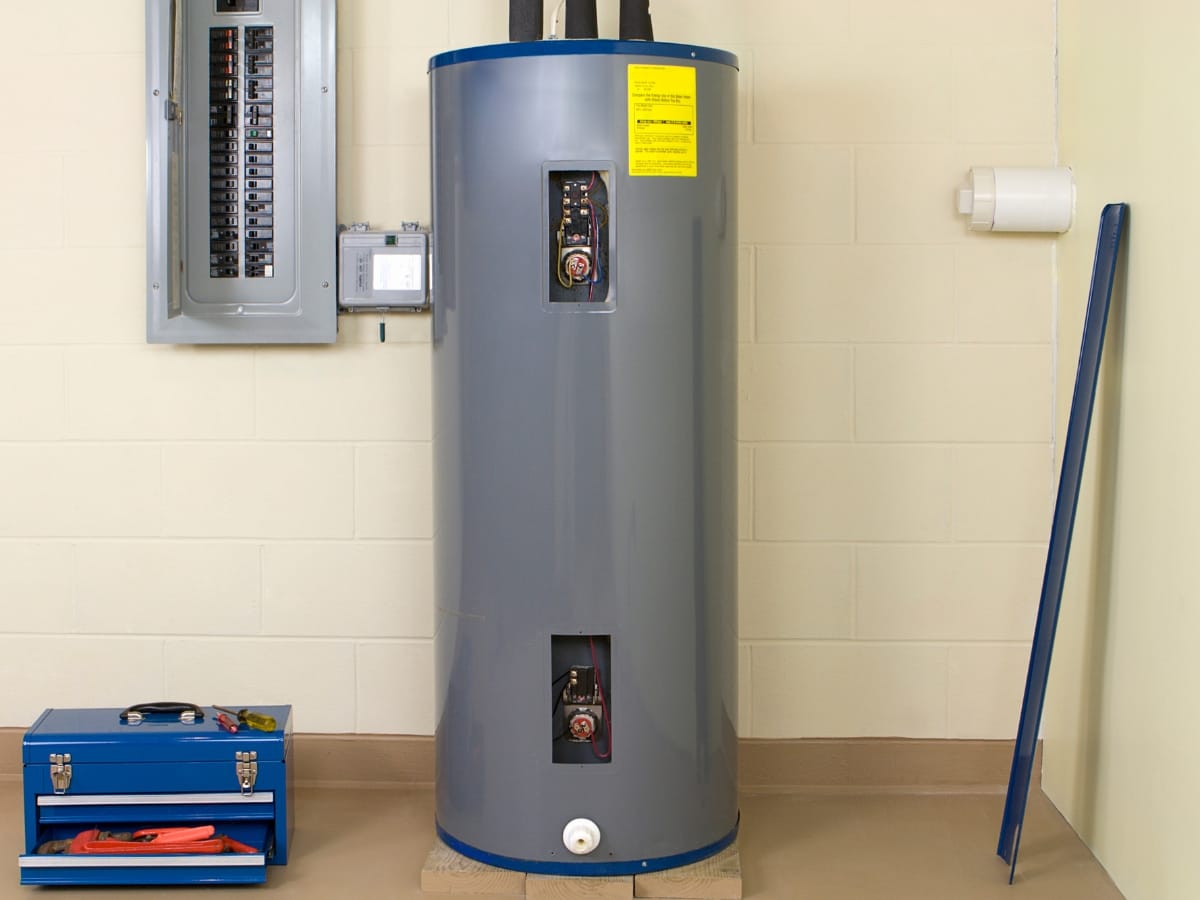
Atlanta’s winters are typically mild, but occasional cold snaps mean a heating system must handle steady, moderate loads as well as sudden drops into the 20s. Understanding local weather patterns—daytime highs near 55°F, nighttime lows sometimes below 30°F—helps homeowners choose a solution that balances comfort, efficiency, and operating costs.
Heating Demands in Atlanta’s Mild Winters
Most of the season sees temperatures between 40°F and 60°F, so heating systems that offer gradual, even warmth perform best. Heat pumps excel in these conditions by transferring outdoor heat indoors with minimal energy use. However, when a hard freeze arrives, many homes switch to auxiliary electric heat or activate a gas furnace backup. Furnaces powered by natural gas respond quickly to sudden temperature drops and maintain steady output regardless of how low outdoor temperatures fall.
Humidity’s Impact on Comfort and Efficiency
Atlanta’s winter air often carries higher humidity than in cooler regions, making interiors feel chilly at temperatures that would otherwise feel comfortable. If a system circulates damp air, occupants may set thermostats higher and run equipment longer, wasting energy. Heat pumps with active dehumidification modes or furnaces connected to properly sealed ductwork and dehumidifiers help keep indoor moisture in check. By addressing humidity alongside temperature, homeowners can reduce unnecessary runtime and prevent mold growth in ductwork or living spaces.
Why Hybrid and Backup Options Matter
Combining technologies—such as pairing a heat pump with a high-efficiency gas furnace—lets a home automatically switch to the most cost-effective heat source. During average winter days, the heat pump handles demand using electricity at lower cost than resistance heating. When temperatures dip below the heat pump’s optimal range, the system engages the furnace, avoiding the strain and reduced efficiency that cold air can cause. This automatic switching enhances comfort without manual intervention or abrupt temperature swings.
Sizing and Cycling Considerations
Systems designed for regions with harsh winters often have larger capacities and longer minimum cycle times. In Atlanta, an oversized unit may cycle on and off too rapidly, reducing efficiency and causing temperature fluctuations. Conversely, a system sized solely for average conditions might struggle during a prolonged cold snap. Accurate load calculations—factoring in insulation levels, window efficiency, and sun exposure—ensure equipment runs in longer, balanced cycles that preserve both efficiency and component life.
What Key Factors Should You Consider When Choosing a Heating System?
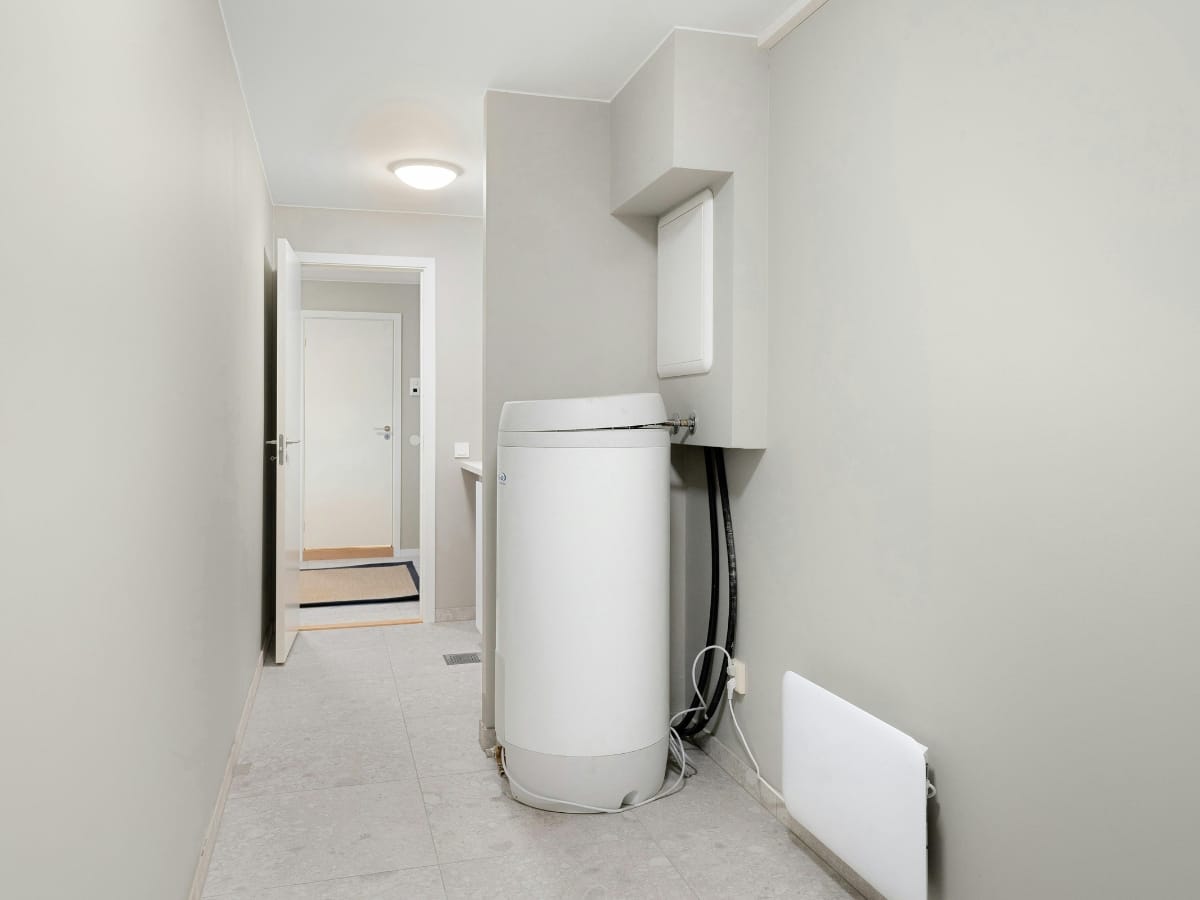
When you select a heating system for an Atlanta home, several practical considerations determine long-term comfort and operating costs. You need to balance system efficiency, installation expenses, home characteristics and evolving regulations. Focusing on these factors ensures the system you choose will deliver reliable warmth, lower utility bills and comply with local requirements.
Energy Efficiency Ratings Impact Heating Costs
Furnace efficiency is measured by AFUE, which shows how much fuel converts into usable heat. Standard models run at about 80 percent AFUE, while top- tier units reach up to 98 percent. Each point of higher AFUE can cut annual fuel use by roughly one percent. Heat pumps rely on SEER and HSPF ratings: older models start around SEER 14, while modern units exceed SEER 20, trimming combined heating and cooling costs by up to 30 percent. In Atlanta’s mild winters, a high-efficiency heat pump often outperforms electric resistance heat, and a 95-percent AFUE gas furnace can minimize winter heating bills.
Typical Installation and Replacement Costs in Atlanta
The price of replacing or installing a heating system depends on unit type, size, and complexity. A basic natural gas furnace in the 80,000–100,000 BTU range generally runs between $3,500 and $5,000 installed. Upgrading to a sealed-combustion, 95-percent AFUE model pushes that figure to $5,000–$7,500. A two- to five-ton heat pump typically costs $4,500–$8,000, while a dual-fuel setup combining heat pump and gas furnace ranges from $6,000 to $9,500. Utility rebates and federal tax credits for ENERGY STAR equipment can cover 20 to 30 percent of these costs, making efficient systems more affordable for Metro Atlanta homeowners.
Home Size and Ductwork Considerations
Matching system capacity to your home’s square footage and insulation levels prevents both short cycling and inadequate heat. Oversized units turn on and off too often, wearing out components and reducing efficiency. Undersized equipment struggles on the coldest nights. Homes without existing ductwork may benefit from ductless mini-split heat pumps, which provide zoned temperature control without invasive installation. Even in homes with ducts, ensuring proper sealing and insulation minimizes heat loss and maximizes system performance, lowering energy bills and improving comfort.
Environmental Regulations and Incentives in Georgia
Georgia’s environmental and energy policies reward efficiency. Federal tax credits cover up to 30 percent of the cost for qualifying heat pumps, and many electric cooperatives offer rebates between $200 and $700 for ENERGY STAR-rated heating equipment. Starting in 2025, new systems must use refrigerants with lower global warming potential, driving the market toward greener products. By choosing compliant equipment today, homeowners not only secure incentives but also protect themselves against future regulatory changes and potential retrofit costs.
Why Is Professional Heating System Installation Important for Atlanta Homeowners?
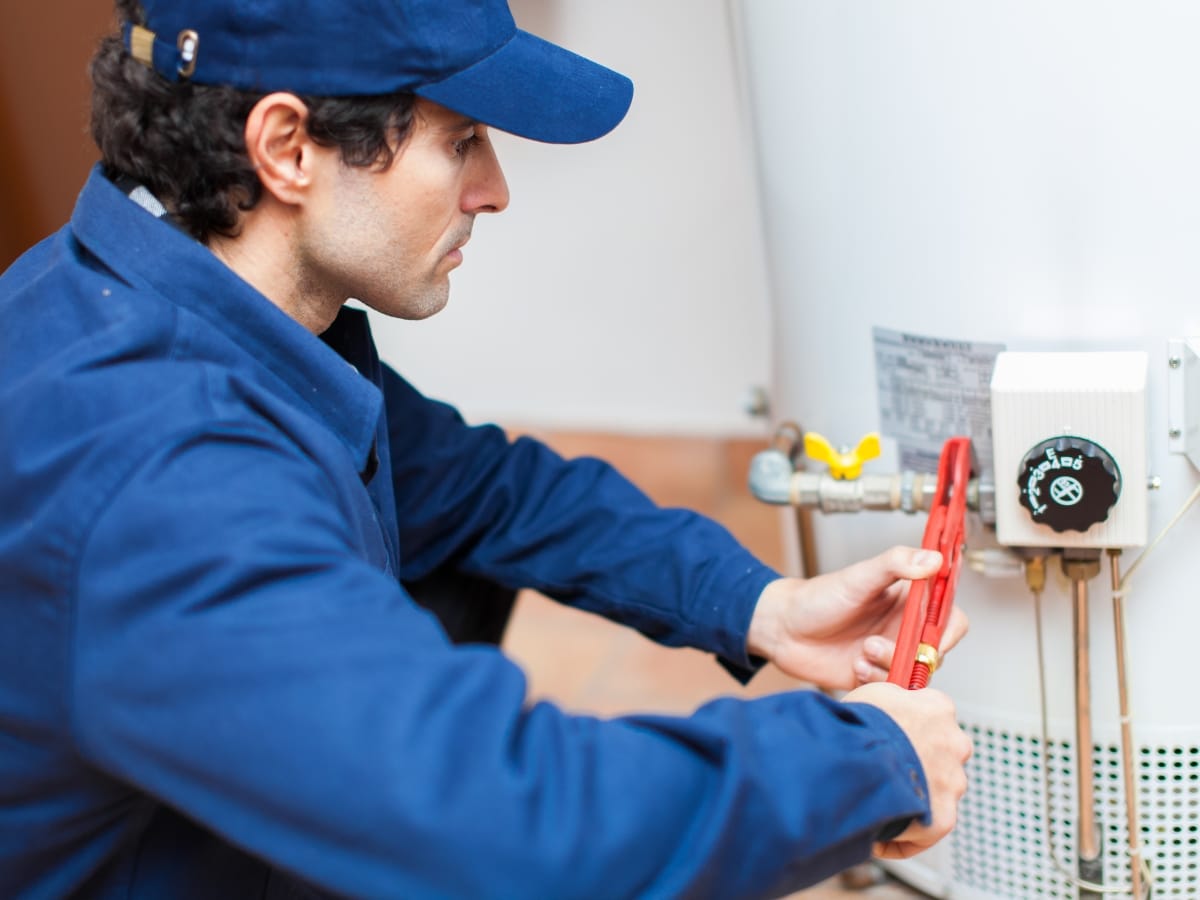
Professional installation lays the groundwork for a heating system that runs safely, efficiently and reliably. In Atlanta’s mixed-humidity winters, even a high-efficiency furnace or heat pump will underperform if it’s poorly sized, improperly connected or not thoroughly tested. A correctly installed system balances airflow, maximizes energy savings and reduces the risk of breakdowns. It also preserves factory warranties, since most manufacturers require certified technicians to verify that every component meets strict quality and safety standards before the unit is put into service.
Advantages of NATE-Certified Technicians
Technicians certified by the North American Technician Excellence (NATE) program have demonstrated their knowledge through rigorous exams covering installation, diagnostics and safety procedures. When you choose a NATE-certified installer, you benefit from fewer service callbacks and more precise workmanship. These experts understand how to optimize airflow, set proper combustion parameters on gas furnaces and manage refrigerant levels on heat pumps. Their training also ensures that safety interlocks, venting arrangements and electrical connections comply with code requirements, giving you confidence that your home is both comfortable and protected.
The Impact of Proper Sizing and Installation on Performance and Warranty
A heating system must match your home’s unique heat-load requirements to deliver even temperatures without cycling on and off excessively. Professionals perform detailed load calculations that account for square footage, insulation levels, window quality and attic ventilation. Once the correct capacity is selected, installers focus on duct sealing and balancing supply and return paths so that every room receives the right volume of conditioned air.
Precise refrigerant charging and calibration of controls further lock in efficiency gains. Since many manufacturers tie warranty coverage to documented commissioning steps, having a certified technician handle every detail prevents voided warranties and extends the useful life of your investment.
What to Expect During the Installation Process
The installation begins with a thorough site assessment, during which the installer inspects existing ductwork, confirms electrical supply capacity and evaluates clearances for the new unit. After completing load calculations, the team positions the outdoor unit or furnace for optimal airflow, service access and drainage. Ductwork modifications follow, including sealing leaks, insulating runs and installing proper return grilles.
The technician then connects electrical wiring, gas lines or refrigerant piping, taking care to purge air from lines and verify pressure levels. During startup, safety devices are tested, controls are calibrated and airflow measurements are recorded. Finally, the installer walks you through the system’s operation, sharing maintenance tips such as filter replacement schedules and thermostat programming strategies to preserve efficiency.
How Can Regular Maintenance Extend the Life and Efficiency of Your Heating System?
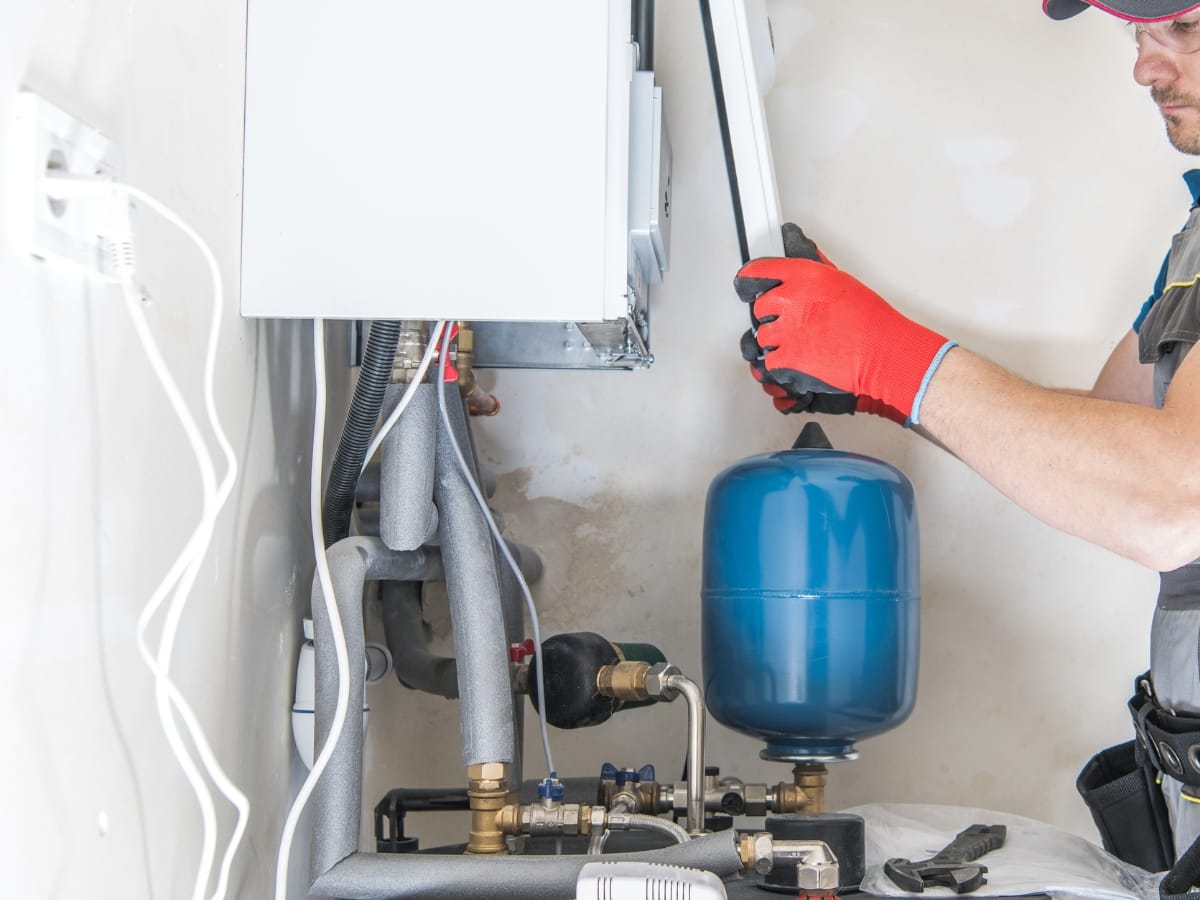
Regular maintenance is the best way to keep your heating system running smoothly, efficiently and safely for years to come. In Atlanta’s climate, where mild winters can suddenly turn cold, an annual inspection plus a few simple homeowner tasks can prevent breakdowns, lower energy bills and preserve indoor air quality.
Essential Maintenance Tasks for Atlanta Homes
Every few months, homeowners should check or replace the air filter to ensure unobstructed airflow and remove dust, pollen and pet dander. A clogged filter forces the blower to work harder, driving up electricity use and reducing comfort. Once a year—ideally before the first chill—have a qualified technician inspect the burner assembly and heat exchanger for signs of corrosion or cracks. Any damage in these areas can allow combustion gases to leak into living spaces or reduce heat transfer efficiency.
For heat pumps, confirming refrigerant levels and looking for oil stains around pipe connections helps catch leaks early. If refrigerant falls below the manufacturer’s recommended range, performance will suffer and electricity use will spike. Finally, keeping ductwork clean and sealed prevents warm air from escaping into crawl spaces or attics and stops dust buildup that can exacerbate allergies.
Timing Your Tune-Ups
Scheduling a professional checkup each fall ensures that your system is ready for consistent winter operation. In Atlanta’s case, where humidity swings can leave residual moisture in ductwork, a spring check of both cooling and heating functions can be helpful, especially if you notice musty odors or reduced airflow. Regular biannual inspections may be warranted in homes with older equipment or those that rely heavily on forced-air heat during extended cold snaps.
Warning Signs of System Trouble
Several indicators suggest that your heating system needs attention. If certain rooms stay noticeably cooler than others or if the furnace burner cycles on and off more frequently than before, airflow or combustion issues may be at play.
Spikes in monthly energy bills without a change in thermostat settings often point to hidden problems such as worn belts, dirty blower wheels or low refrigerant. Unusual sounds—like rattling, clanking or high-pitched squeals—can signal loose components or motor wear. And any persistent burning or metallic odors during startup should be checked immediately to rule out overheating or electrical faults.
Long-Term Benefits of Regular Care
By replacing filters, inspecting critical components and sealing ducts, you avoid emergency repair calls in the dead of winter. Systems that are routinely checked and cleaned maintain their rated efficiency for longer, reducing overall energy consumption by as much as 10 to 15 percent.
Well-maintained heat exchangers and properly charged refrigerant circuits also extend equipment lifespan, delaying costly replacements. And because a clean, sealed system circulates fewer allergens and odorous particles, it contributes to healthier indoor air quality throughout the heating season.
How Can Smart Thermostats Enhance Your Atlanta Home Heating System?
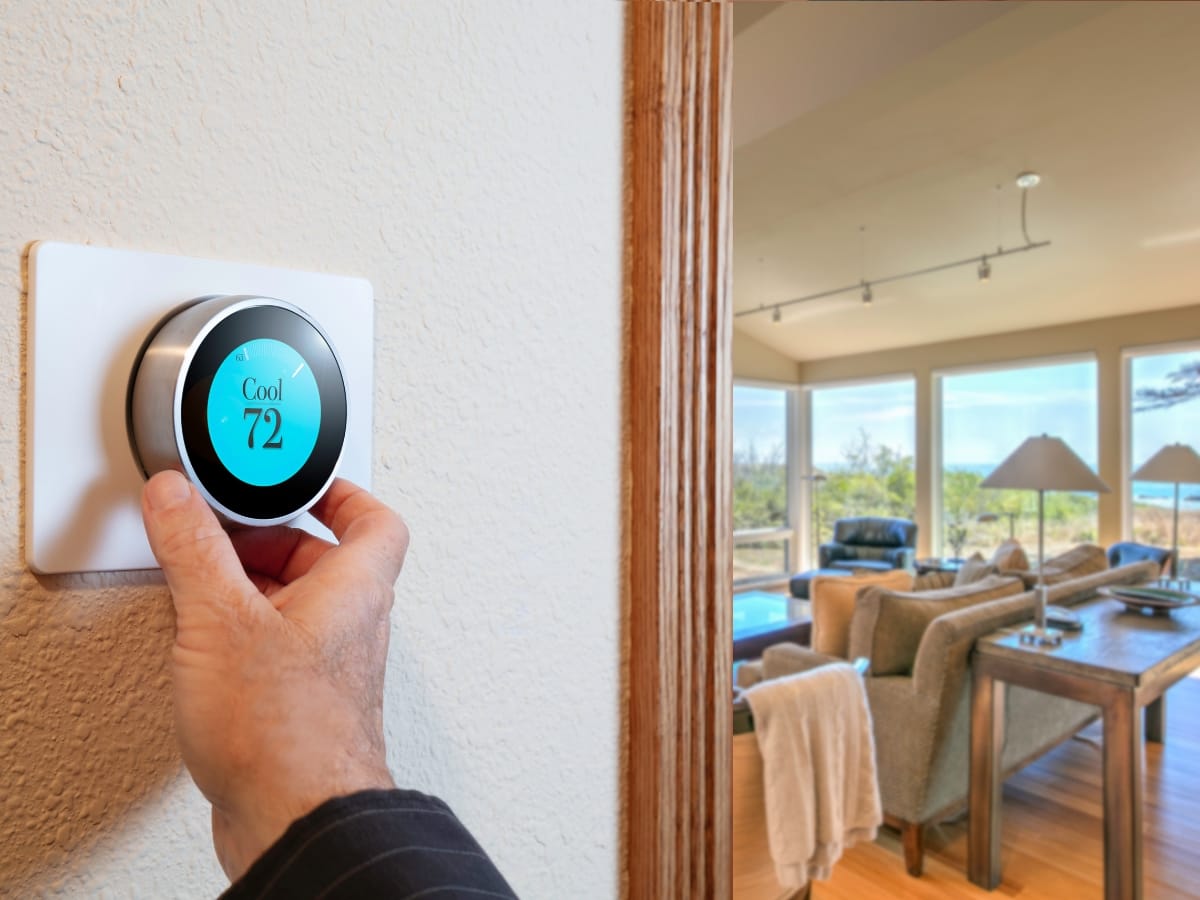
Smart thermostats learn homeowner patterns, adjust temperatures automatically and offer remote control, yielding immediate comfort improvements and energy savings.
What Are the Benefits of Using Smart Thermostats with Furnaces and Heat Pumps?
Integrating a smart thermostat can:
- Reduce heating costs by up to 15% through adaptive schedules
- Provide real-time energy usage reports for informed decisions
- Enable voice control and geofencing to pre-condition homes upon arrival
How Do Smart Thermostats Adapt to Atlanta’s Climate Variations?
Smart devices factor in local weather forecasts and humidity levels to tweak temperature setpoints, ensuring balanced warmth and moisture control during Atlanta’s damp winters.
Which Smart Thermostat Models Are Recommended for Atlanta Homes?
Popular, compatible models include:
- Nest Learning Thermostat – Learns usage and adjusts automatically
- Ecobee SmartThermostat – Built-in room sensors optimize comfort zone by zone
- Honeywell T9 – Affordable, reliable scheduling with remote sensor support
Pairing these controls with any heating system amplifies efficiency and user convenience.
How Are New HVAC Regulations and Technologies Impacting Heating Systems in Atlanta?
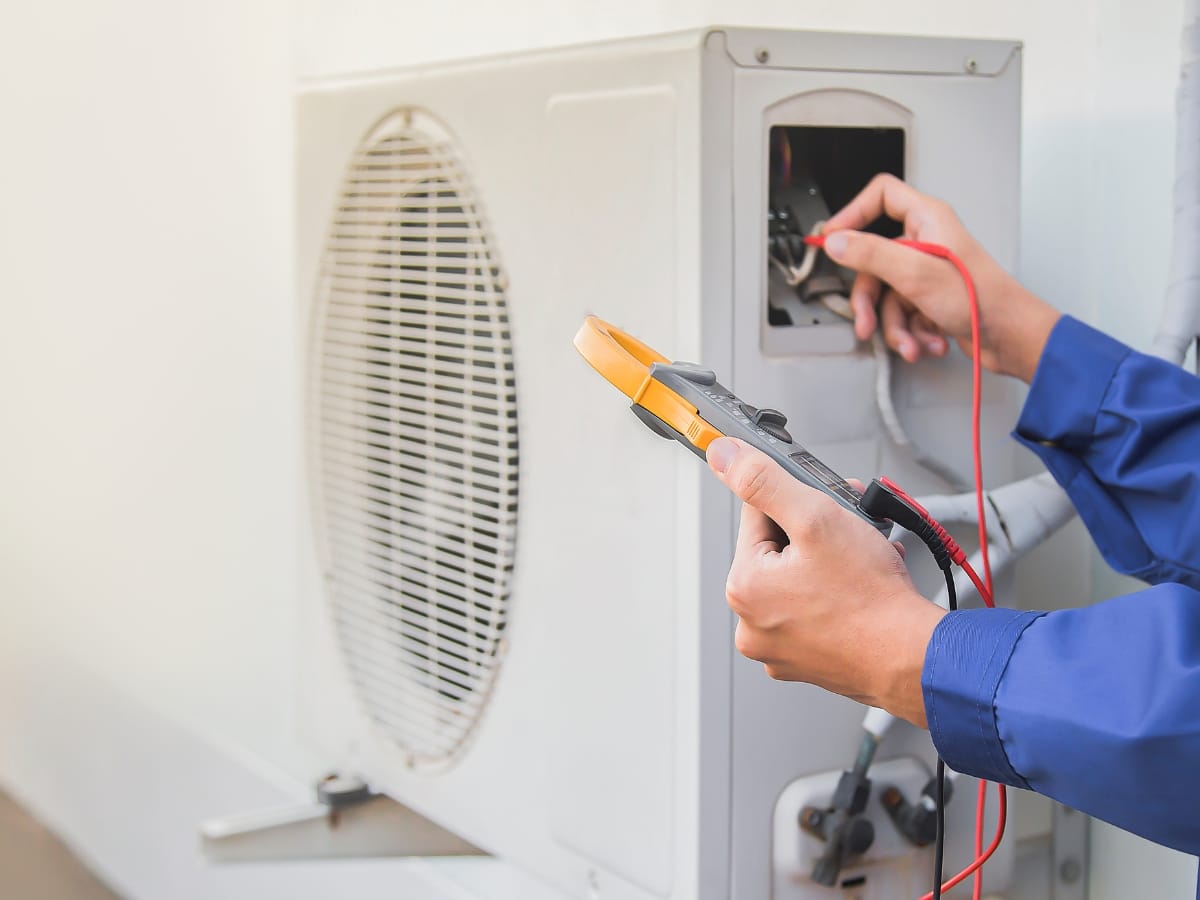
Federal and industry standards are prompting a shift in the heating equipment available to Atlanta homeowners. New refrigerant rules, coupled with advances in heat pump and furnace design, are driving higher performance levels, greener operation, and revised installation practices in the local market.
What Are the 2025 Federal Refrigerant Regulations and Their Effects on Heating Systems?
Beginning in 2025, the EPA will phase out the widely used R-410A refrigerant, which has a high global-warming potential, in favor of lower-impact alternatives. Equipment makers are replacing R-410A with blends such as R-454B or R-32. While these new refrigerants cut greenhouse-gas emissions by up to 75 percent, they also require redesigned compressors and evaporator coils.
That engineering update typically adds 20 to 40 percent to the upfront cost of a heat pump or air conditioner. On the upside, early adopters avoid the need for early retrofits when the old refrigerants finally become unavailable.
How Are Local Installers Adapting to Low-GWP Refrigerants?
Atlanta contractors are retraining technicians in safe handling of flammable or mildly flammable refrigerants. They are investing in system designs that meet new pressure and chemical compatibility standards. The change also affects permitting and code inspections, since local jurisdictions now require proof of leak-detection equipment and updated piping materials. Homeowners benefit from extended manufacturer warranties that cover both the new refrigerant and the modified hardware, ensuring reliable operation through future regulatory shifts.
What Emerging Heating Technologies Should Atlanta Homeowners Consider?
Variable-capacity heat pumps have become increasingly popular in Metro Atlanta. Instead of cycling on and off at full power, inverter-driven units adjust compressor speed continuously, maintaining more stable indoor temperatures and using up to 30 percent less electricity. Hybrid or dual-fuel systems pair a heat pump with a gas furnace that automatically takes over on the coldest nights, delivering seamless comfort without sacrificing efficiency. Smart zoning technology adds another layer of control by using motorized dampers and remote sensors to direct warm air only where it’s needed, further reducing energy waste in unoccupied rooms.
Why These Changes Matter for Efficiency and Cost
Although equipment costs have risen in response to stricter refrigerant standards, the long-term savings from higher seasonal energy efficiency ratios (SEER) and heating-season performance factors (HSPF) can quickly offset the initial investment. New heat pumps rated for SEER values above 20 and HSPF ratings over 10 deliver up to 50 percent more heating capacity per kilowatt-hour than older models. In combination with lower-GWP refrigerants and precise capacity control, these systems reduce both homeowner utility bills and environmental impact.
Frequently Asked Questions
What is the lifespan of different heating systems in Atlanta?
The lifespan of heating systems can vary significantly based on the type and maintenance. Gas furnaces typically last 15 to 20 years, while heat pumps can last around 10 to 15 years. Dual-fuel systems, which combine both technologies, may also have a similar lifespan depending on usage and care. Regular maintenance can extend the life of any system, ensuring optimal performance and efficiency throughout its operational years.
How can I improve the energyefficiency of my existing heating system?
Improving the energyefficiency of your heating system can be achieved through several methods. Regular maintenance, such as changing filters and cleaning ducts, is essential. Additionally, upgrading to a smart thermostat can optimize heating schedules based on your lifestyle. Insulating your home properly and sealing any drafts can also significantly reduce energy loss, making your heating system work more efficiently and lowering your energy bills.
What are the signs that I need to upgrade my heating system?
Several indicators suggest it may be time to upgrade your heating system. If your system is over 15 years old, frequently requires repairs, or if you notice inconsistent heating throughout your home, these are strong signs. Additionally, rising energy bills without increased usage can indicate inefficiency. If your system uses outdated refrigerants or lacks modern features like smart technology, an upgrade could enhance comfort and efficiency.
Are there any specific heating systems recommended for energyefficiency in Atlanta?
In Atlanta, heat pumps are often recommended for their energyefficiency, especially during mild winters. They provide both heating and cooling, making them versatile for year-round use. High-efficiencygas furnaces are also a good option for those who prefer traditional heating methods. Dual-fuel systems combine the benefits of both, optimizing energy use based on temperature, which can be particularly advantageous in Atlanta’s climate.
What financing options are available for upgrading heating systems in Atlanta?
Homeowners in Atlanta have several financing options for upgrading their heating systems. Many local utility companies offer rebates and incentives for energy-efficient installations. Additionally, federal tax credits can cover a portion of the costs for qualifying systems. Some contractors provide financing plans with low or zero-interest options, making it easier to afford high-efficiency systems without a significant upfront investment.
How do I choose the right size heating system for my home?
Choosing the right size heating system involves calculating the heating load required for your home, which considers factors like square footage, insulation levels, and local climate. A professional HVAC technician can perform a load calculation to determine the appropriate system size. An oversized system can lead to short cycling and inefficiency, while an undersized system may struggle to maintain comfort, so accurate sizing is crucial for optimal performance.
Conclusion
Choosing the right heating system for your Atlanta home is crucial for comfort, efficiency, and long-term savings—whether you need a high-efficiency furnace, a heat pump, or a hybrid solution. At CoolPro Heating & Cooling, we specialize in helping homeowners find the perfect HVAC system tailored to their needs and budget. Don’t leave your comfort to chance—send us a message through our site form or call 770-694-6232 today for expert advice and top-tier installation. With CoolPro, you’ll enjoy reliable warmth all winter, backed by unbeatable service.



